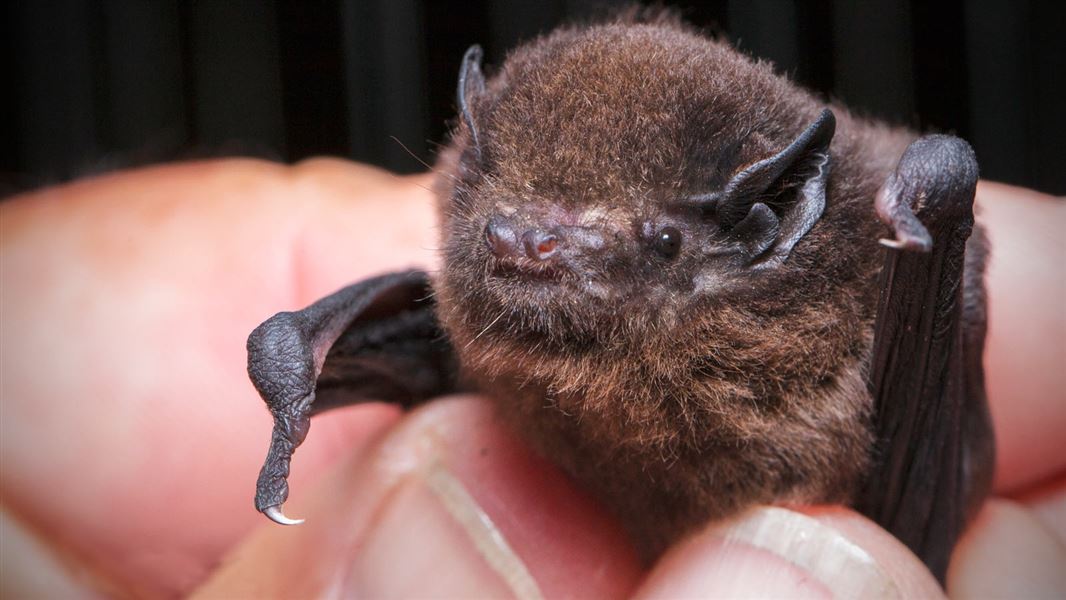Archived content: This media release was accurate on the date of publication.
Date: 16 February 2022
Since November 2021 audio monitors put out by Jobs for Natue (JFN) workers have captured bat sounds at Lake Moeraki, Saltwater Forest, Lake Ianthe, Wanganui catchment, Landsborough, Haast township and Ferguson Creek (Harihari).
Pekapeka/long-tailed bats are listed as threatened-nationally critical.
Last year JFN workers from Franz Josef Wilderness Tours helped discover pekapeka/long-tailed bats near Franz Josef for the first time in decades.
Department of Conservation Senior Ranger Biodiversity Tracey Dearlove says since November 2021, 70 monitors were put out in different locations to capture the unique sound signature of the bats.
“We put them at locations with good pekapeka/long-tailed bat habitats such as near slow moving waterways or on forest edges, and targeted areas which had either never been surveyed for bats before, or where there were only very old bat records.”
Tracey Dearlove says the monitors were deployed by workers employed through Te Rūnanga o Makaawhio, Franz Josef Wilderness Tours, Okarito Sandfly Repellent and Fox Glacier Guides.
“Wilderness Lodge at Lake Moeraki volunteered to give us extra help and deployed recorders in their area.
“JFN workers also did the data analysis. The people who put the monitors out were really interested in checking the recordings too.”
Te Rūnanga o Makaawhio chairman Paul Madgwick has welcomed the news.
“We’re very excited about the finds of this taonga species. JFN is a win-win as it provides skills training, work, and contributes to conservation.”
DOC South Westland Operations Manager Wayne Costello says there’s plenty of good news coming out of JFN for South Westland.
“Businesses have told us that their staff are learning huge amounts about native species and conservation through JFN, and that it has brought value to their business, as they share the knowledge they’ve gained with visitors who come on their tours.
“Not only are we getting great conservation work outcomes, but JFN is growing skills, conservation awareness and advocacy. The South Westland JFN programme is also shining a light on the potential for genuine nature-based experiences to be the tourism drawcard of the future.
“Another benefit is that those doing the mahi through JFN are loving being out in nature in work which means they can stay and live in our Glacier Country communities which are really struggling. They’re getting work opportunities which provide stress release and increase wellbeing at the same time.”
Background information
Through JFN over 40 South Westland business have been undertaking a range of conservation work throughout South Westland and for other DOC regions
Other biodiversity work done in South Westland has included camera footage analysis for a predator control project in Nelson, 1.5 million images were viewed over three months
Contact
For media enquiries contact:
Email: media@doc.govt.nz
